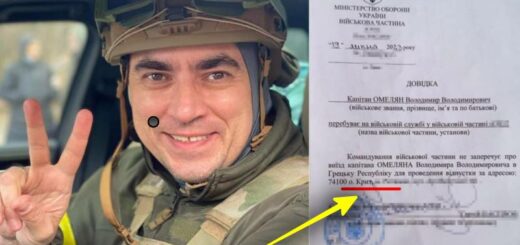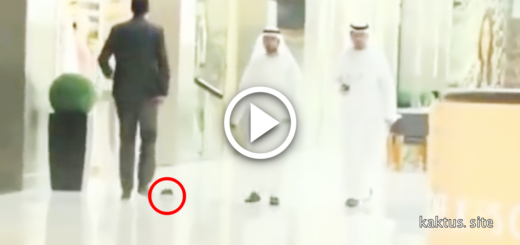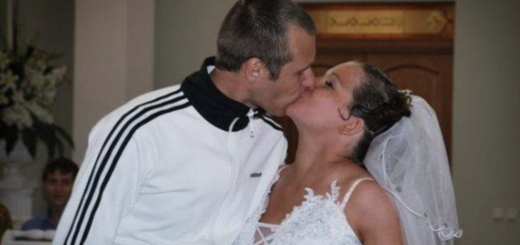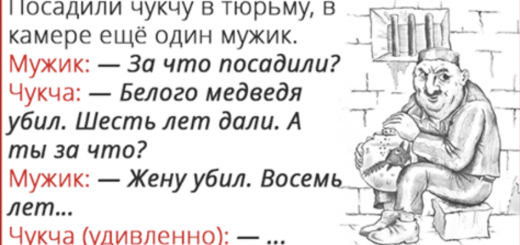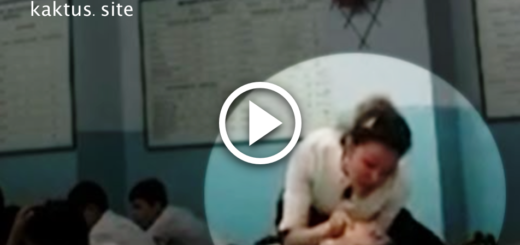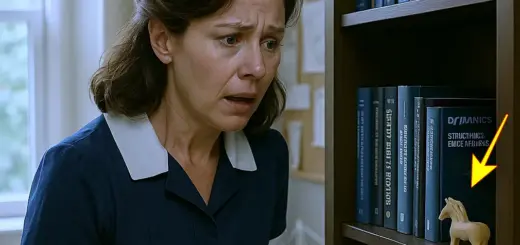Transitions. Even his vocabulary had shifted to corporate-speak, sanitizing the personal into the professional. I wondered if Harrison Blackwood had coached him on that, too. How to distance yourself linguistically from the spouse you were about to discard.
That night, after Scott had fallen asleep, I sat in the living room with my laptop and pulled up the incorporation documents for Hamilton Financial Services. Page after page of legal structure I’d carefully built before saying, «I do,» never imagining I’d need the protection but understanding that good bookkeepers always maintain clean records and clear boundaries. The apartment purchase agreement showing Hamilton Financial Services as the buyer. The investment account documentation, opened under my LLC’s EIN number.
Even our joint checking account was technically a business account with Scott listed as an authorized signer, not an owner. I’d spent seven years letting Scott believe he was the primary breadwinner because it seemed to matter so much to his sense of self. Now I understood that silence had been interpreted as confirmation of his superiority. He’d mistaken my discretion for inability, my quiet competence for lack of ambition.
The man sleeping in our bed—my bed, really—had built an entire narrative around a financial fiction that was about to become very, very real for him.
The next morning, I woke at 5:15 a.m. and started what would become my new routine: performing the role of devoted wife while documenting the dissolution of my marriage. I cracked eggs for Scott’s breakfast, whisking them exactly how he preferred with a splash of cream and white pepper, while my phone recorded from its position against the coffee maker. The video captured his entrance at 7:45, the way he grabbed his coffee without acknowledgment, scrolling through emails on his phone.
«Big presentation today?» I asked, maintaining the conversational rhythm we’d established over seven years.
«Mmm,» he responded, not looking up.
The cologne hit me then, something new, expensive, with notes of bergamot and cedar. Tom Ford, maybe. Definitely not the Calvin Klein I’d bought him for Christmas.
«You smell nice. New cologne?»
His eyes flicked up briefly, a tell I recognized from years of watching him navigate minor deceptions. «Harrison recommended it. Said professional image includes all the details.»
Harrison. Already influencing his grooming choices. I made a mental note while flipping his eggs. The October credit card statement would be interesting.
«Client dinner tonight,» Scott announced, standing to leave. «Don’t wait up.»
I checked his synchronized calendar on my phone after he left, the one he’d connected to share our schedules. Tuesday, October 15, showed nothing after 3 p.m. No client names, no restaurant reservations, no conference room bookings. But there was a charge on our joint account from yesterday: Chez Laurent, the French restaurant downtown. Table for two. $180. «Business lunch,» he’d categorize it later. Except his actual company card statements showed he’d been in back-to-back meetings at the office during lunch.
The joint account told other stories too. $5,000 withdrawn last Thursday, labeled «Investment Opportunity — Emerging Markets Fund.» Except I knew every legitimate fund Scott had ever considered, and none required cash payments to personal accounts. The routing number on the withdrawal matched publicly available information for Blackwood and Associates’ Client Trust account. Harrison Blackwood was charging premium rates for dismantling marriages, and Scott was paying him from the account I’d meticulously managed for seven years.
I documented everything in a spreadsheet, color-coded and cross-referenced. The cologne purchases at Nordstrom. The unexplained ATM withdrawals in neighborhoods nowhere near his office. The «client entertainment» charges at bars when his calendar showed he should have been home. Each entry was building a financial narrative of a man preparing his exit while assuming his wife was too simple to notice patterns in numbers.
Saturday arrived with our monthly couple’s dinner, the one social obligation Scott hadn’t found an excuse to avoid yet. Marcus and Jennifer Chin hosted this time, their craftsman home warm with cooking smells and the sound of their twin boys arguing about video games upstairs. Marcus worked as a tax attorney, the kind who handled complex corporate structures and actually understood the difference between bookkeeping and financial consulting.
«Kelly!» Jennifer hugged me at the door. «Marcus has been raving about that restructuring you did for the Morrison group. Said it was brilliant.»
Scott’s hand tightened on my lower back, his signal for me to deflect. But I was done deflecting.
«It was an interesting challenge,» I said, loud enough for others to hear. «Forty million in tax savings through proper structural reorganization.»
«Forty million?» David Kim whistled from the living room. «That’s serious money.»
«Kelly loves her numbers,» Scott interjected quickly, steering me inside. «Always exaggerating the importance of decimal places.»
Marcus looked between us, his lawyer’s instincts clearly activated. «Decimal places don’t add up to forty million, Scott. That’s strategic financial architecture.»
The evening progressed with Scott performing damage control, casually mentioning his promotion every ten minutes while lamenting about carrying the financial burden of our household. When Jennifer asked about vacation plans, he laughed bitterly. «Vacation? On one salary? Maybe if I didn’t have to cover everything myself.»
«But Kelly’s consulting—» Marcus started.
«Her little bookkeeping projects barely cover her car payment,» Scott interrupted, taking another sip of wine. His third glass. «I’m essentially a single-income household.»
Marcus’s eyebrows climbed toward his hairline. He knew exactly what Hamilton Financial Services billed because his firm had referred two clients to me last year. But he said nothing, just filed the information away with the precision of someone who understood that sometimes silence gathered more evidence than confrontation.
«Must be stressful,» David offered diplomatically. «Financial pressure can strain any marriage.»
«You have no idea,» Scott agreed, missing the concerned looks Jennifer and Marcus exchanged.
That night, after Scott had fallen asleep—wine always knocked him out by 10 p.m.—I sat in our bathroom with my phone and called Sarah in California. My sister answered on the second ring despite the time difference.
«Kelly, it’s nearly midnight there. What’s wrong?»
«I need legal advice.»
«Oh, honey, what did Scott do?»
The question made me laugh, bitter and short. «It’s more about what he’s planning to do and what I’ve already done.»
I explained everything: the overheard conversation with Patricia, the lawyer fees, the asset documentation based on false assumptions. Then I told her about Hamilton Financial Services, about the LLC structure, about ownership documents that preceded our marriage by two years.
Sarah whistled low. «You set up asset protection before marriage? That’s actually brilliant.»
«I wasn’t planning for divorce. I was planning for business liability protection.»
«Doesn’t matter why you did it. What matters is the legal structure. Is his name on any actual ownership documents? Not ‘authorized user,’ not ‘signatory,’—actual ownership.»
«No. I’ve been careful about that.»
«Then he has no claim. Zero. The apartment, the investments—if they’re held by your LLC and that predates marriage, he can document income disparity all he wants. It won’t matter.»
«What about the fact that I’ve let him believe he owns half of everything?»
«You’ve let him believe a lot of things. That’s not illegal. Has he ever asked to see ownership documents?»
«Never. He just assumes his name being on accounts means ownership.»
Sarah’s legal mind was fully engaged now. «Kelly, he’s building a case on a foundation that doesn’t exist. When his lawyer discovers the LLC structure, it’s going to be like pulling the bottom card from a house of cards.»
«Should I tell him?»
«Absolutely not. Let him document everything. Let him file papers. Let him present his case about income disparity. The more he commits to this narrative, the more spectacular the collapse when reality hits.»
After ending the call, I stood in our bedroom doorway watching Scott sleep. He kicked off the covers, sprawled across the bed like he owned it. Tomorrow he’d wake up and continue his performance of the successful director with the embarrassing wife. He’d meet with Harrison Blackwood and strategize about asset division. He’d text someone about dinner plans that weren’t on his calendar, and I’d continue my own performance: the devoted wife who didn’t notice the new cologne, the missing money, the contempt barely concealed behind corporate-speak.
But underneath that performance, I was building something else entirely. A comprehensive audit of our marriage’s dissolution, documented with the precision of someone who understood that numbers never lie, even when people do. The irony wasn’t lost on me. Scott was so focused on documenting our income disparity that he’d never thought to verify who actually owned the life he was trying to claim.
Two weeks passed in careful orchestration. I maintained every routine while Scott grew increasingly confident in his deception, mistaking my consistency for obliviousness. On Wednesday morning, he approached me with the studied casualness of someone who’d practiced their lines during their commute.
«Kelly, we should talk about our future trajectory.» He stood by the kitchen island, coffee mug in hand, using the same tone he’d use to propose a quarterly business review. «I think it would be beneficial to meet with a neutral third party to discuss our growing incompatibility issues.»
«Incompatibility issues.» He’d workshopped that phrase, I could tell. Probably ran it by Harrison Blackwood to ensure it sounded objective rather than accusatory.
«A counselor?» I asked, though I knew exactly what kind of third party he meant.
«More of a mediator. Someone who can help us navigate this transition professionally.» He set down his mug with deliberate care. «I’ve taken the liberty of arranging someone for tomorrow afternoon. Two o’clock, if that works with your schedule.»
My schedule. As if he’d ever shown interest in my client meetings or consulting deadlines before. «Tomorrow’s fine. Should I prepare anything?»
«Just come with an open mind about restructuring our arrangement.»
Restructuring our arrangement. He couldn’t even say «divorce» without wrapping it in corporate terminology, sanitizing the personal until it sounded like a merger dissolution rather than the end of a marriage.
The next afternoon arrived, gray and drizzling—Seattle weather that seemed choreographed for the occasion. Harrison Blackwood appeared at our door at 1:45 p.m., fifteen minutes early, carrying a leather briefcase that probably cost more than most people’s mortgage payments. His handshake felt like he was handling antique porcelain: delicate, careful, already treating me as something broken.
«Mrs. Morrison,» he said, though my nameplate by the door clearly read «Hamilton.»
«Ms. Hamilton,» I corrected gently, watching him process this small assertion of identity.
«Of course. My apologies.» His smile was practiced, the kind perfected in mirrors and deployed at mediations. «Shall we sit?»
He moved through our apartment with the confidence of someone who’d already mentally cataloged its value. I noticed him noting the artwork, the furniture, the view from the living room windows, calculating assets while maintaining his sympathetic expression. Scott had arranged our dining room like a conference space: legal pads positioned at each seat, water glasses filled and positioned with geometric precision. He’d even dimmed the overhead light and turned on the table lamps, creating what he probably thought was a professional atmosphere but actually felt like a funeral home viewing room.

